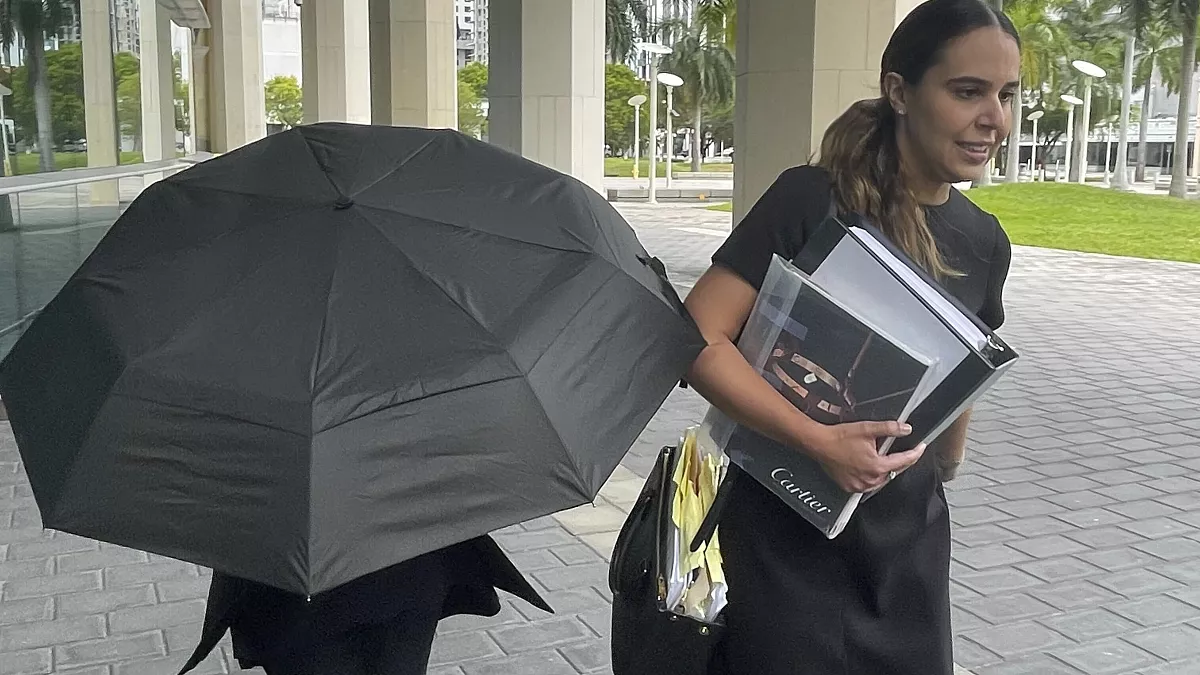In an unsettling turn of events that has sent ripples through the luxury fashion industry, renowned Colombian handbag designer Nancy Gonzalez has been sentenced to 18 months in prison for her involvement in wildlife smuggling.
The designer, whose exquisite creations have graced the arms of high-profile celebrities like Britney Spears and the cast of “Sex and the City,” faced the harsh reality of her actions in a Miami federal court on Monday.

Nancy Gonzalez, at 71, has long been celebrated for her vibrant, meticulously crafted handbags, often seen as a symbol of luxury and exclusivity. However, beneath the surface of these coveted accessories lay a grim truth—many were illegally made from the skins of protected reptiles such as caimans and pythons.
Nancy Gonzalez: Smuggling for Fashion
The US Department of Justice revealed that Gonzalez had breached the Convention on International Trade in Endangered Species of Wild Fauna and Flora (CITES), a crucial international treaty both Colombia and the US are committed to, which regulates the trade of endangered species to ensure their survival.
Unlike other wildlife crimes that may go unnoticed, Gonzalez’s operation was audacious; she engaged family members and employees to smuggle these luxury items into the US, bypassing necessary import permits and legal scrutiny.
Celebrity handbag designer Nancy Gonzalez jailed for wildlife smuggling https://t.co/LHc56DcN7U
— BBC News (World) (@BBCWorld) April 23, 2024
From 2016 to 2019, these handbags traveled covertly on passenger airlines, destined for Gonzalez’s New York showroom. Once in the US, the bags reached the hands of other celebrities like Victoria Beckham and Salma Hayek and even featured in prestigious settings like the Metropolitan Museum of Art in 2008 and luxury retailers including Neiman Marcus and Harrods.
Edward Grace from the US Fish and Wildlife Service commented on the case, stating, “This investigation uncovered a multi-year scheme that involved paid couriers smuggling undeclared handbags made of CITES-protected reptile skins into the US to be sold for thousands of dollars.”
He emphasized the commitment of the service to prosecuting those who sidestep regulations designed to protect vulnerable wildlife.

A Regretful Admission
In a poignant moment during her trial, Gonzalez expressed deep remorse for her actions. “From the bottom of my heart, I apologize to the United States of America,” she told the court, as reported by the Associated Press. “I never intended to offend a country to which I owe immense gratitude. Under pressure, I made poor decisions.”
Her apology, however sincere, underscores a broader issue within the luxury fashion industry— the often unseen environmental and ethical costs of producing high-end fashion items. Gonzalez’s case serves as a stark reminder of the responsibilities that designers and consumers alike must bear when it comes to sustainability and ethical considerations.

A Call for Ethical Fashion
Nancy Gonzalez’s fall from grace is a cautionary tale that casts a shadow over the glamorous world of luxury fashion. It highlights the need for greater transparency and adherence to environmental laws that safeguard our planet’s most vulnerable species.
As consumers, we are reminded of the power of our choices and the impact they have on the world around us. In the wake of this scandal, perhaps the industry will see a shift towards more sustainable and ethically sourced materials, ensuring that the future of fashion respects both beauty and biodiversity.










